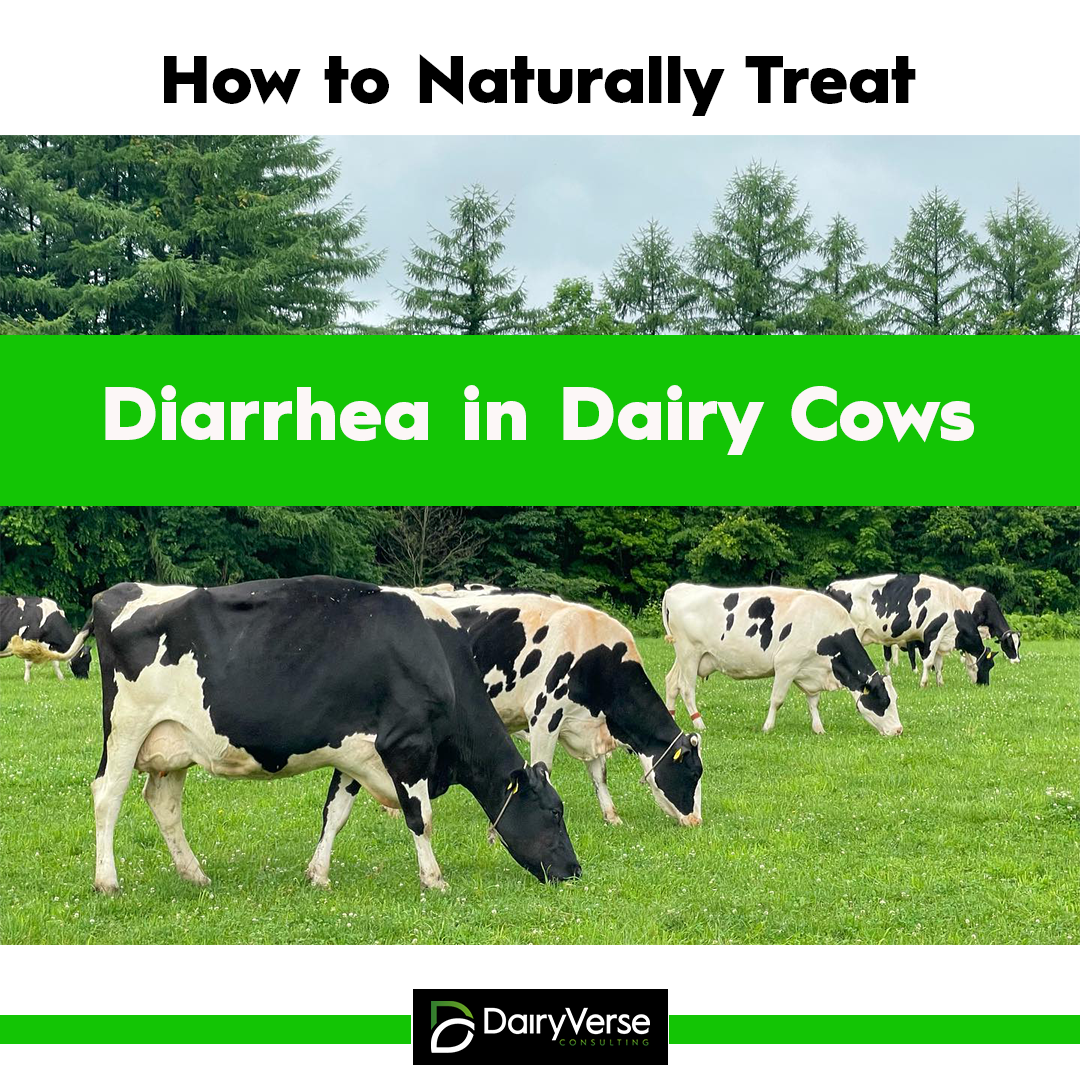Diarrhea in dairy cows is a common yet concerning issue. It can lead to dehydration, reduced milk production, and a drop in overall health, affecting both the cow and the profitability of the dairy farm. While medications and treatments are available, natural remedies are often favored as a safer, sustainable, and more holistic approach. Here, we’ll explore the causes, symptoms, and natural treatments for diarrhea specifically in dairy cows.
Common Causes of Diarrhea in Dairy Cows
Dairy cows may experience diarrhea due to several factors:
- Dietary Imbalances: High grain diets, sudden feed changes, or poor-quality silage can disrupt digestion.
- Bacterial and Viral Infections: Pathogens like E. coli, Salmonella, and rotavirus are common causes of diarrhea.
- Parasites: Worms and other internal parasites can upset the digestive tract.
- Stress: Transport, calving, extreme weather changes, and overcrowding can all stress cows and lead to digestive upset.
- Metabolic Disorders: Dairy cows, especially high-producing ones, are susceptible to metabolic issues like ketosis, which can lead to diarrhea.
- Spoiled Feed or Contaminated Water: Moldy or spoiled feed and unclean water sources can introduce harmful bacteria.
Recognizing the Symptoms
Signs of diarrhea in dairy cows can include:
- Loose, Watery Stools: A change in stool consistency, with liquid or runny manure, is a clear indicator.
- Dehydration: Symptoms like sunken eyes, dry nose, and reduced skin elasticity.
- Lethargy: Affected cows may show signs of fatigue, reduced movement, and low energy.
- Drop in Milk Production: Diarrhea can affect the cow’s milk yield due to nutrient loss and dehydration.
- Loss of Appetite: Sick cows may eat less, further impacting their health and milk production.
Natural Treatments for Diarrhea in Dairy Cows
- Electrolyte Solutions for Rehydration
Rehydration is crucial. Electrolytes help replace fluids, salts, and minerals lost through diarrhea. You can make a natural electrolyte solution with:- 1 gallon of warm water
- 1 tablespoon of salt
- 1 tablespoon of baking soda
- ½ cup of molasses or honey
Offer this solution 2-3 times a day to rehydrate the cow and restore electrolyte balance.
- Apple Cider Vinegar
Apple cider vinegar (ACV) supports digestive health by balancing pH levels in the gut. Add 1-2 cups of ACV to the cow’s drinking water daily. This natural remedy helps reduce harmful bacteria and can improve digestion.
- Activated Charcoal
Activated charcoal is useful for absorbing toxins in the digestive system, especially if the diarrhea is due to spoiled feed. A small dose of powdered activated charcoal can be mixed with water and administered carefully (about 100 grams mixed with water) based on the cow’s size. Consult a vet if needed for precise dosing.
- Probiotics
Probiotics help restore beneficial bacteria in the gut, which is essential for digestion. You can add commercial livestock probiotics or use natural sources such as yogurt or kefir. Giving probiotics for several days will help stabilize the cow’s gut health and promote recovery.
- Aloe Vera Gel
Aloe vera is known for its soothing properties. You can add a few ounces of pure aloe vera gel to the cow’s water or mix it with feed. Aloe vera supports the digestive tract and can reduce inflammation, helping the cow recover faster.
- Garlic and Ginger
Both garlic and ginger have natural antibacterial and anti-inflammatory properties. Mince a few cloves of garlic and about an inch of ginger, mix with feed, or blend with water and administer. Use this sparingly, as large amounts can be harmful, but in small quantities, it can help fight infections causing diarrhea.
- Slippery Elm Bark or Marshmallow Root
These herbs soothe the lining of the stomach and intestines, making them great for reducing inflammation. Use the powdered form and mix with water or feed (about 20 grams for an adult cow) once or twice daily.
- Cinnamon and Honey Mixture
Cinnamon has antibacterial properties, while honey is soothing and provides energy. Mix 1 tablespoon of cinnamon powder with ¼ cup of honey and feed to the cow once daily. This mixture can help reduce intestinal irritation and support the immune system.
Preventing Diarrhea in Dairy Cows
Preventive measures are key to minimizing diarrhea outbreaks. Here are some effective practices:
- Stable Diet: Avoid sudden changes in feed and maintain a balanced diet with adequate fiber to support digestion.
- High-Quality Feed and Clean Water: Ensure feed is fresh, mold-free, and stored properly. Always provide clean, fresh water.
- Regular Parasite Control: Deworming programs are essential for dairy cows to prevent parasite-induced diarrhea.
- Good Hygiene Practices: Keep barns, water troughs, and feed areas clean to reduce exposure to pathogens.
- Reduce Stress: Minimize handling stress and provide a comfortable, stable environment, especially during calving or transport.
When to Seek Veterinary Assistance
While natural remedies are helpful, it’s important to monitor the cow’s condition closely. If diarrhea persists for more than 2-3 days, worsens, or is accompanied by blood in the stool, fever, or significant milk production loss, consult a veterinarian immediately. Persistent diarrhea can lead to dehydration and health complications that require medical intervention.
Conclusion
Natural treatments are an effective way to manage diarrhea in dairy cows, especially when caught early. Remedies like apple cider vinegar, probiotics, aloe vera, and electrolyte solutions help cows recover naturally while promoting gut health and rehydration. Combining these treatments with good preventive measures can support your herd’s well-being and help maintain productivity. As always, keeping a close eye on each cow’s condition and responding quickly to health issues is essential for successful dairy farming.
